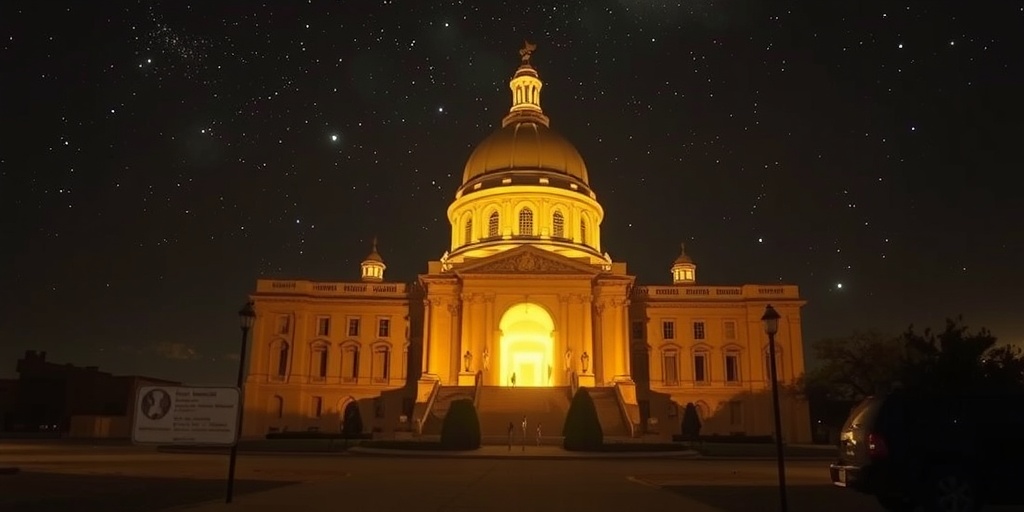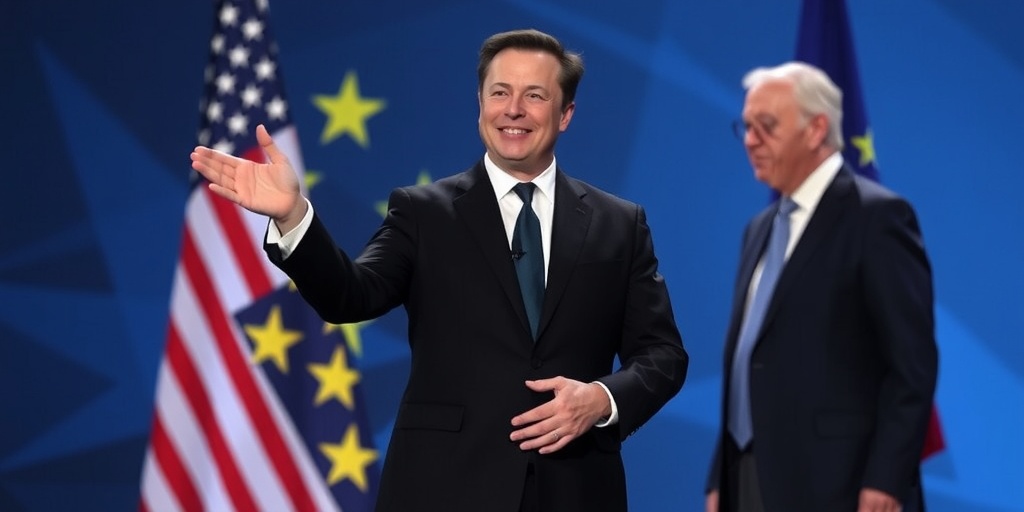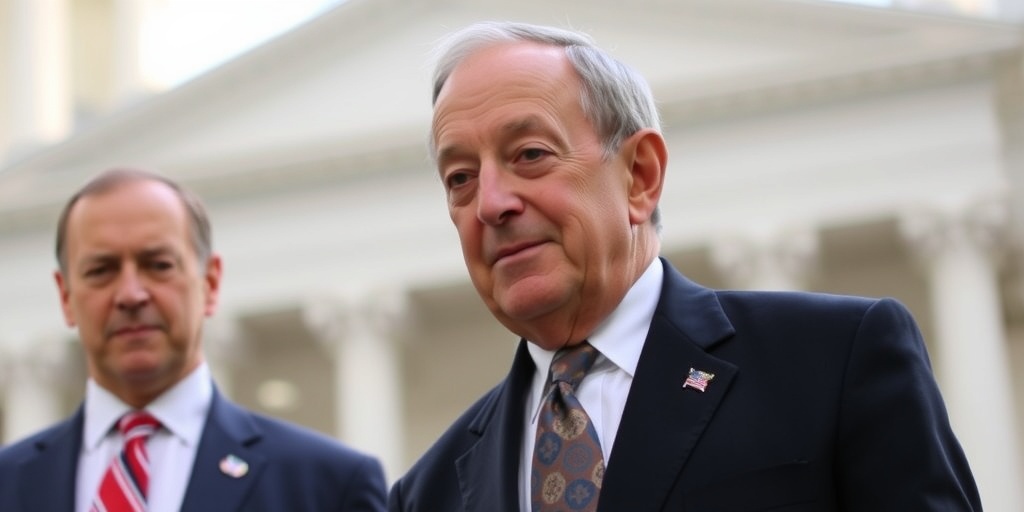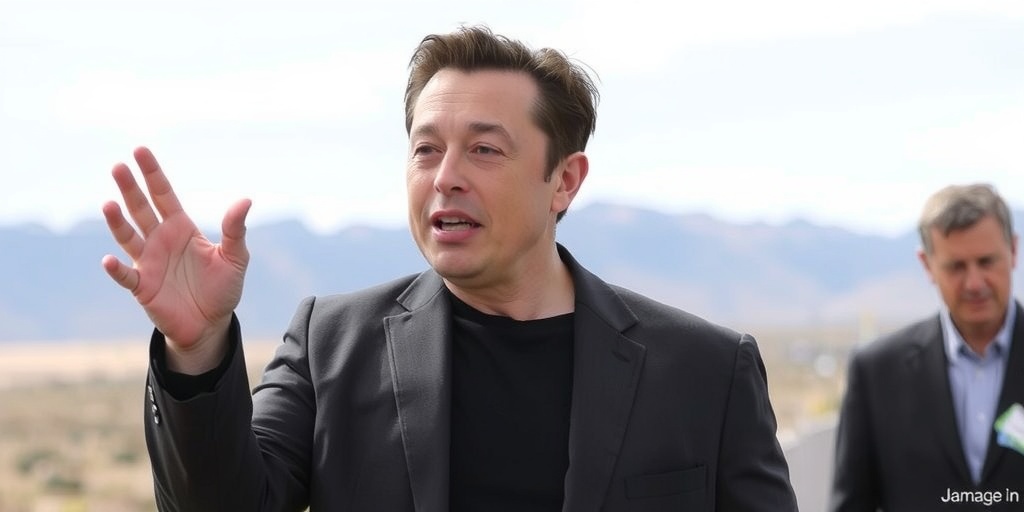Now Reading: Texas Case May Illuminate Alien Enemies Act Invocation
-
01
Texas Case May Illuminate Alien Enemies Act Invocation
Texas Case May Illuminate Alien Enemies Act Invocation

Supreme Court Ruling Sparks Legal Battles Over Venezuelan Deportations
Immigration lawyers are bracing for a significant impact following the recent Supreme Court ruling that mandates any legal challenges regarding the Trump administration’s use of wartime statutes to deport Venezuelan migrants must be filed where the migrants are being held. This ruling does not just set a precedent; it opens the door to further legal scrutiny of the administration’s controversial deportation strategies.
The reaction among lawyers specializing in immigration law has been one of urgency and adaptability. They now face the challenge of adjusting their strategies to comply with the Court’s ruling. Concurrently, a similar case is unfolding in a Federal District Court in Brownsville, Texas, that could shed light on the larger narrative regarding the treatment of Venezuelan migrants in the United States.
This case centers on Daniel Zacarias Matos, a Venezuelan migrant who, along with his eight-year-old daughter, sought asylum in the United States in December 2023. Zacarias Matos claims that immigration authorities attempted to deport him without a proper hearing or a formal removal order, invoking the Alien Enemies Act — a measure from 1798 that permits the government to target individuals from a hostile nation during wartime or invasion circumstances.
Judge Fernando Rodriguez Jr. is presiding over Zacarias Matos’s case. In March, he issued an order halting Matos’s deportation, allowing time to investigate the circumstances surrounding his detainment and the legality of the administration’s actions. As the case progresses, both sides — Zacarias Matos’s legal representatives and the Justice Department — are expected to present opposing views and evidence in court filings scheduled for later this month.
Though the circumstances surrounding Zacarias Matos’s case do not match those of the larger group of Venezuelan migrants involved in the Supreme Court ruling, it raises pertinent questions about the broader implications of such deportations. Specifically, there is a growing concern regarding the treatment of asylum seekers and whether their expedited deportation under wartime laws is legally sound and ethically justifiable.
According to court documents, Zacarias Matos and his daughter were apprehended by federal immigration agents in October 2023 after a probation violation led to his arrest at the El Paso County Jail. The documents reveal that early last month, he was transferred to El Valle Detention Center in Raymondville, Texas. This facility is reportedly a holding location for numerous Venezuelan migrants awaiting deportation under policies that assert expansive powers granted by the Alien Enemies Act.
Many of these migrants have been accused of affiliations with a notorious street gang, Tren de Aragua. Despite these allegations, Zacarias Matos asserts he has not been implicated in any crimes related to such organizations. However, he claims to have been informed that he would be deported under the same presidential proclamation that applies to the others being detained.
On March 14, immigration officials attempted to deport Zacarias Matos, but faced difficulties when the plane did not pass inspection. Subsequently, he was told he would be placed on another flight the following day. When he raised concerns about not having received a formal deportation order, agents allegedly informed him that his deportation was dictated by a presidential order. Moreover, paperwork indicated that if he resisted signing a voluntary departure order, the authorities would unilaterally prepare one for him.
The Supreme Court’s ruling did not delve into the legality of using the Alien Enemies Act in this context but instead focused on procedural aspects, specifying that lawsuits must be initiated in Texas rather than Washington, D.C. This has significant ramifications for legal advocates representing Venezuelan migrants, as it confines their litigation options to the locations where the detained individuals are held.
Immigration attorneys have argued that the conditions necessary for invoking the Alien Enemies Act do not exist as there is no current state of war or invasion. The situation with Venezuelan migrants highlights the complexities of determining whether individuals can be regarded as affiliates of a hostile foreign regime.
As proceedings move forward, Judge Rodriguez has requested three rounds of briefs to be submitted by the end of the month, with a court hearing scheduled for May 5. This case could potentially set important precedents regarding the legality of the Trump administration’s actions concerning asylum seekers and the invocation of ancient laws in modern contexts. As the legal battle unfolds, the implications for thousands of Venezuelan migrants hanging in the balance remain profound and uncertain.
Stay Informed With the Latest & Most Important News
Previous Post
Next Post
-
 01New technology breakthrough has everyone talking right now
01New technology breakthrough has everyone talking right now -
 02Unbelievable life hack everyone needs to try today
02Unbelievable life hack everyone needs to try today -
 03Fascinating discovery found buried deep beneath the ocean
03Fascinating discovery found buried deep beneath the ocean -
 04Man invents genius device that solves everyday problems
04Man invents genius device that solves everyday problems -
 05Shocking discovery that changes what we know forever
05Shocking discovery that changes what we know forever -
 06Internet goes wild over celebrity’s unexpected fashion choice
06Internet goes wild over celebrity’s unexpected fashion choice -
 07Rare animal sighting stuns scientists and wildlife lovers
07Rare animal sighting stuns scientists and wildlife lovers





















